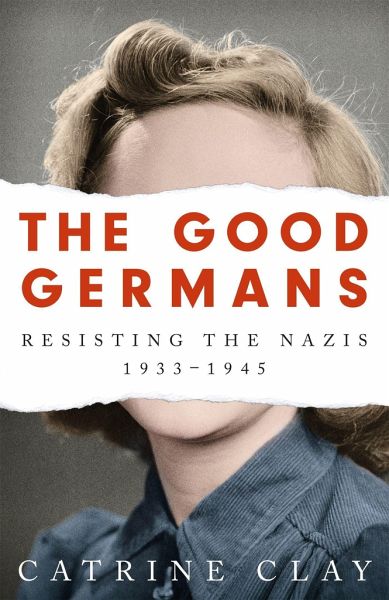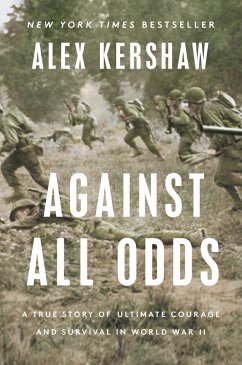
The Good Germans
Resisting the Nazis, 1933-1945
Versandkostenfrei!
Versandfertig in über 4 Wochen
20,99 €
inkl. MwSt.
Weitere Ausgaben:

PAYBACK Punkte
10 °P sammeln!
After 1933, as the brutal terror regime took hold, most of the two-thirds of Germans who had never voted for the Nazis - some 20 million people - tried to keep their heads down and protect their families. They moved to the country, or pretended to support the regime to avoid being denounced by neighbours, and tried to work out what was really happening in the Reich, surrounded as they were by Nazi propaganda and fake news. They lived in fear. Might they lose their jobs? Their homes? Their freedom? What would we have done in their place? Many ordinary Germans found the courage to resist, in the...
After 1933, as the brutal terror regime took hold, most of the two-thirds of Germans who had never voted for the Nazis - some 20 million people - tried to keep their heads down and protect their families. They moved to the country, or pretended to support the regime to avoid being denounced by neighbours, and tried to work out what was really happening in the Reich, surrounded as they were by Nazi propaganda and fake news. They lived in fear. Might they lose their jobs? Their homes? Their freedom? What would we have done in their place? Many ordinary Germans found the courage to resist, in the full knowledge that they could be sentenced to indefinite incarceration, torture or outright execution. Catrine Clay argues that it was a much greater number than was ever formally recorded: teachers, lawyers, factory and dock workers, housewives, shopkeepers, church members, trade unionists, army officers, aristocrats, Social Democrats, Socialists and Communists. Catrine Clay's ground-breaking book focuses on six very different characters: Irma, the young daughter of Ernst Thalmann, leader of the German Communists; Fritzi von der Schulenburg, a Prussian aristocrat; Rudolf Ditzen, the already famous author Hans Fallada, best known for his novel Alone in Berlin; Bernt Engelmann, a schoolboy living in the suburbs of Dusseldorf; Julius Leber, a charismatic leader of the Social Democrats in the Reichstag; and Fabian von Schlabrendorff, a law student in Berlin. The six are not seen in isolation but as part of their families: a brother and sister; a wife; a father with three children; an only son; the parents of a Communist pioneer daughter. Each experiences the momentous events of Nazi history as they unfold in their own small lives - Good Germans all.













